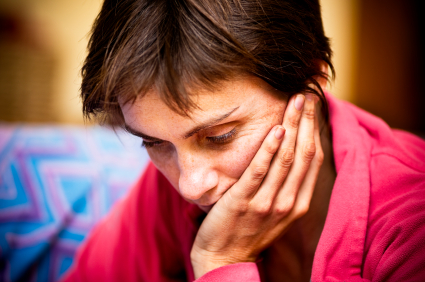The news for womens’ health care this week has been surprisingly good — for once. The Department of Health and Human Services released a bunch of new guidelines on Monday, which included the directive that preventive health care for women be provided without a co-pay. Perhaps the biggest effect of that policy is that birth control will now be free of charge for most women; that aspect of the guidelines is certainly getting the most attention in the headlines.
But “preventive care” doesn’t just mean the pill, it also refers to services that are a lot more relevant to the lives of queer women. For example, the guidelines mean that domestic violence screenings will be free after August 2012. That’s great news, considering a new study just published in the Journal of the American Medical Association points to a huge link between gender violence and mental illness.
The study showed that 27% of Australian women had suffered at least one episode of gender violence. (For comparison, Australia has rates of gender violence similar to the U.S.) Gender violence includes sexual abuse, rape, domestic violence, stalking, etc. That statistic sets up the real point of the study:
Fifty-seven percent of the women with a history of abuse also had a history of depression, bipolar disorder, post-traumatic stress, substance abuse, or anxiety (including panic disorder and obsessive-compulsive disorder), versus 28% of the women who had not experienced gender-based violence.
Among women who had been exposed to at least three different types of violence, the rate of mental disorders or substance abuse rose to 89%.

For those of us who weren’t stats majors, that is a huge correlation. What does that mean, though? Well, the study points out that most of the instances of violence or abuse happen relatively early in a woman’s life, while instances of mental illness and substance abuse happen later in life. So while making causal generalizations about psychology or mental illness can be messy and dangerous, it seems much more likely that exposure to gender violence leads to mental issues, not the other way around.
Obviously, we know that gender violence is a huge problem for women around the world, gay and straight. It’s hard to grow up as a woman anywhere and not realize that. But this study is showing us that the problem does not stop at those instances of violence. It is plaguing women with serious, systemic and ongoing problems — ones that can be difficult to get treated and that often carry as much stigma as the gender violence that may have caused them. Given the fact that many of the treatment and care options that women can pursue immediately after instances of trauma and later in life when experiencing their aftermath can be very costly, many women may not get care at all. For instance, counseling for domestic or partner violence can cost hundreds of dollars even with insurance; without coverage, it’s thousands. And since women still make significantly less than men – and queer and trans women are disadvantaged in the workplaces, and women of color are near the bottom of the earnings ladder – treatment may be out of reach.
This research suggests that the best overall solution is to minimize gender violence — a problem that’s faced our communities for generations, and seems unlikely to be “fixed” in the near future. It’s an ongoing and worthwhile struggle, but what should we do while fighting that battle? The researchers provide their ideal solution: “Mental health specialists and providers of women’s health services should collaborate and develop a unified approach to more effectively screen and treat mental health problems in women who have experienced violence.”
And the new Health and Human Services guidelines could help health care providers do just that. With a greater availability of preventive services, maybe we will finally see the improvements to women’s health care that we so desperately need. We have to hope so — for many women, there isn’t another option.

Yay for advances in women’s health care. Thanks for the article, Sarah.
I don’t really want to get into why, but… this might explain a lot.
It’s not exactly a shocking revelation, but… you know.
Thanks for writing about the hard things too. xx
Reason number 263 why I’m a feminist.
Susan B. Anthony High Five!
This is not a surprise, it’s actually kinda obvious. And yet it’s good that now we have a study to back that up.
Thank you, Sarah
Glad I found this article today. Gonna start up counseling again tomorrow since I am a grad student and it is free (well, included with tuition and fees and what not.) Trying to be proactive with my mental health.